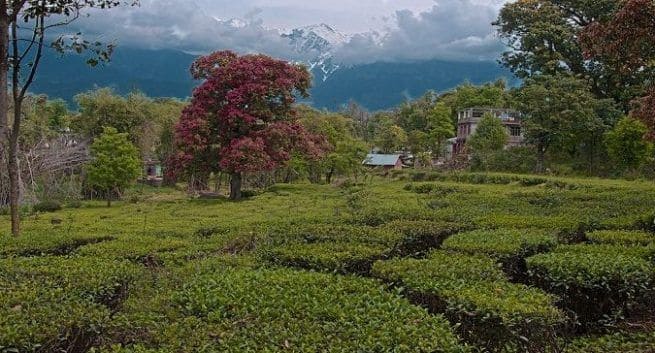
Kangra Tea claimed to have properties to block COVID-19
The chemicals in Kangra tea may help boost immunity as well as block the COVID-19 virus activity better than the anti-HIV drugs – say some experts.
by Longjam DineshworiScientists around the world are racing against time to find a cure or vaccine for COVID-19 disease but seems like it may not happen anytime soon. Meanwhile, Ayurveda experts have high hope that traditional herbal remedies may help fight against the pandemic. Also Read - COVID-19 vaccine: What’s the latest on this front?
The Indian government is also leaving no stone unturned to fight the pandemic and find a cure for the deadly disease. Besides allocating funds to drug companies/institutes to support the development of vaccine candidates, it has also turn to Ayurveda for battling the condition. Recently, AYUSH Ministry has chosen 4 Ayurvedic formulations for clinical trial to treat COVID-19. The herbal drugs include Ashwagandha, Yashtimadhu (Mulethi), Guduchi + Pippali (Giloy) and AYUSH-64. The AYUSH Ministry and the Council of Scientific and Industrial Research (CSIR) are working together on this project and the results are expected to come within three months. Also Read - ICMR revises guidelines for use of hydroxychloroquine: Study says the drug can increase death risk
Another herb is also being claimed to have the properties to block Sars-Cov-2 and it is Kangra Tea. Some experts are suggesting that Kangra Tea, well known for its other medicinal properties, may help boost immunity against the novel coronavirus. They even claim that it can block the virus activity better than the anti-HIV drugs that are currently used as preventive medication for patients and health care professionals. Also Read - COVID-19 outbreak: Scientists develop replaceable filter to overcome shortage of N95 masks
The power of Kangra Tea
Kangra Tea is packed with bioactive chemicals or polyphenols that could help boost immunity as well as block the COVID-19 virus activity, according to some researchers.
The chemicals can effectively bind to a specific protein that helps the novel coronavirus to thrive inside human cells. This might help block the activity of the viral protein, they suggest.
Kangra tea is grown in the Kangra district of Himachal Pradesh and it is well known for its unique colour and flavour. Kangra tea is a little milder than Darjeeling tea in terms of flavour and has more body and liquor. Loaded with antioxidants, catechins and polyphenols, Kangra tea is said to offer these health benefits:
- Promotes weight loss.
- Reduces the risk of heart diseases, cancer (ovarian and skin), diabetes, Parkinson’s, Alzheimer’s, eczema, high blood pressure
- Builds immunity.
- Lowers cholesterol.
- Relieves asthma, stress and diarrhoea.
- Improves oral health and mental alertness
- Treats hair fall.
Ashwagandha as a weapon against the COVID-19
A few days back, a group of IIT-Delhi researchers also revealed that Ashwagandha contains certain bio-actives that can prevent COVID-19 from multiplying inside the body.
According to them, Ashwagandha contains a natural compound called withanone (Wi-N), which the potential to block the enzyme responsible for the virus replication. It is also claimed that Ashwagandha, if used along with an active ingredient of propolis called Caffeic Acid Phenethyl Ester (CAPE), can block the replication process of the virus.
Ayurveda experts describe Ashwagandha a superb immunity-enhancing agent. They believe that this herb can protect the lungs from inflammation, one of the main impacts of COVID-19 infection.
Lung inflammation cause overproduction of cytokines, proteins that activate our immune cells. Ashwagandha inhibits this process with its anti-inflammatory properties, they say.
Ayush-64, one of the our Ayurvedic formulations chosen for clinical trial to treat COVID-19, is a combination of seven ayurvedic herbs including saptaparna, katuki, kiratatikta and kuberaksha among others. The Central Council For Research In Ayurvedic Sciences developed this formulation some 10-15 years back for treatment of frequent fevers, especially malaria.